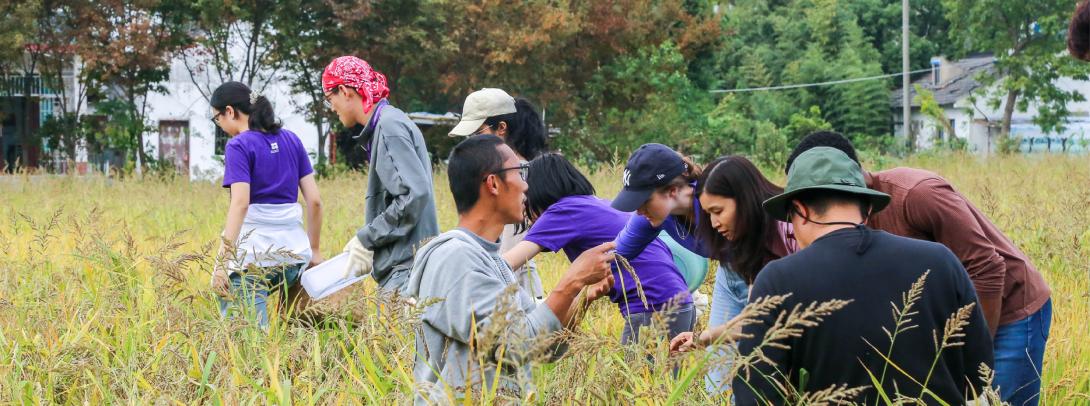A group of students escaped from the hustle and bustle of the city last weekend, spending the day at a permaculture farm harvesting rice and fresh herbs while getting to know the people who live in the intentional community. The tour of Yungu Farm in Jinshan District featured rice paddies, a “food forest” of pomelos and kiwis, and a duck pond.
The day trip was organized by NYU Shanghai’s Community Engaged Learning Office (CELO) in collaboration with NYU Shanghai Reads to reflect this year’s selected text, Braiding Sweetgrass: Indigenous Wisdom, Scientific Knowledge and the Teachings of Plants, by Robin Wall Kimmerer. Kimmerer combines her perspectives as a botanist and an Indigenous Potawatomi woman to argue for the necessity of forming a reciprocal relationship with the earth and appreciating the lessons from the natural world.
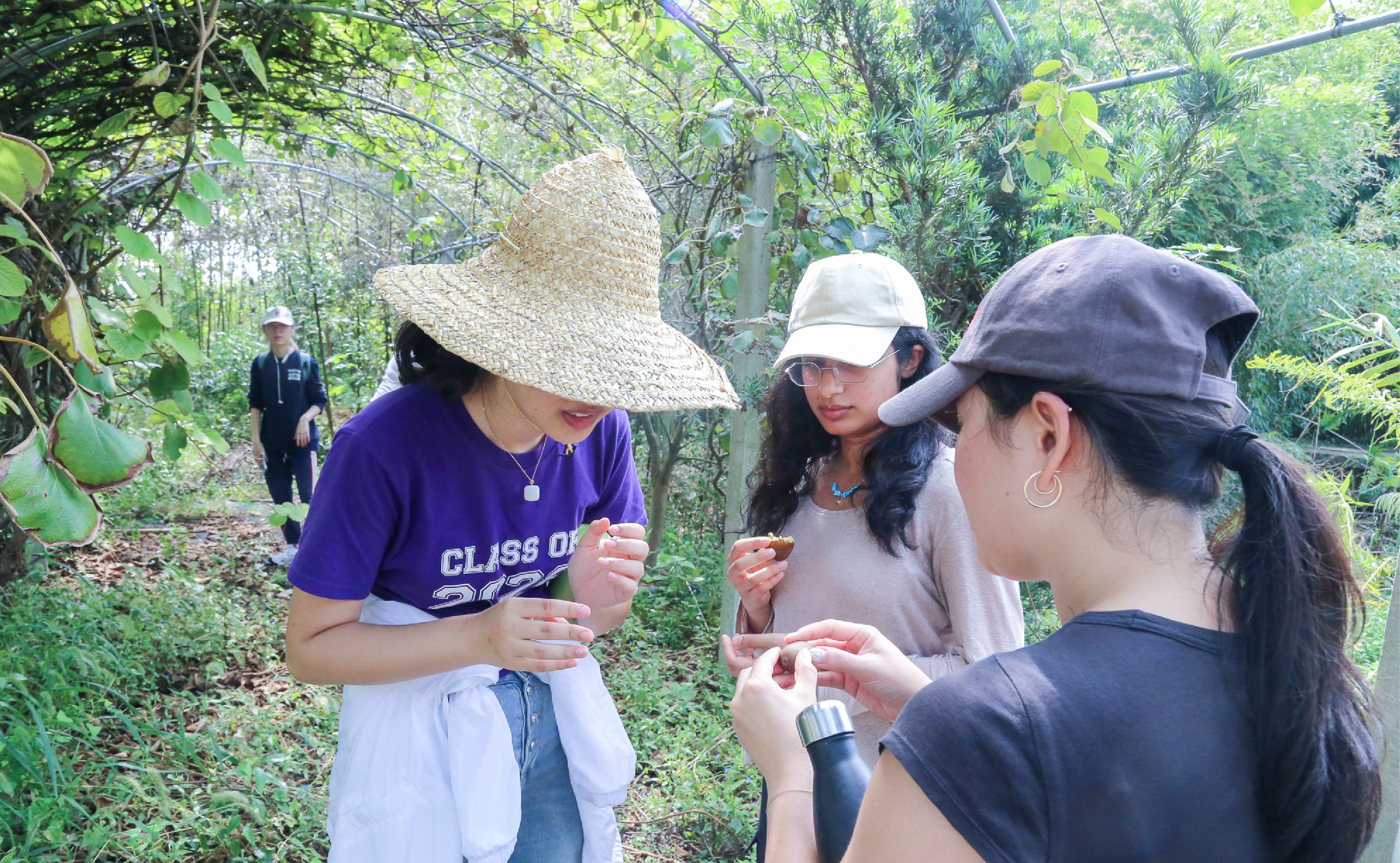
While at the farm, students enjoyed a delicious lunch of pumpkin, greens, lotus root and winter melon stew, fried bean curd, and rice with freshly-harvested water chestnuts, while participating in a mindful eating exercise led by Assistant Professor of Global China Studies Zhang Liangliang. “The way we meditated before and during lunch brought us food for thought," said NYU Shanghai student Yang Mingqian ’28. “Think[ing] of the whole process of the growth of all ingredients used and the effort put into the cooking process, the meal is even more meaningful. The meal taught me the lesson that simplicity is compatible with richness.”
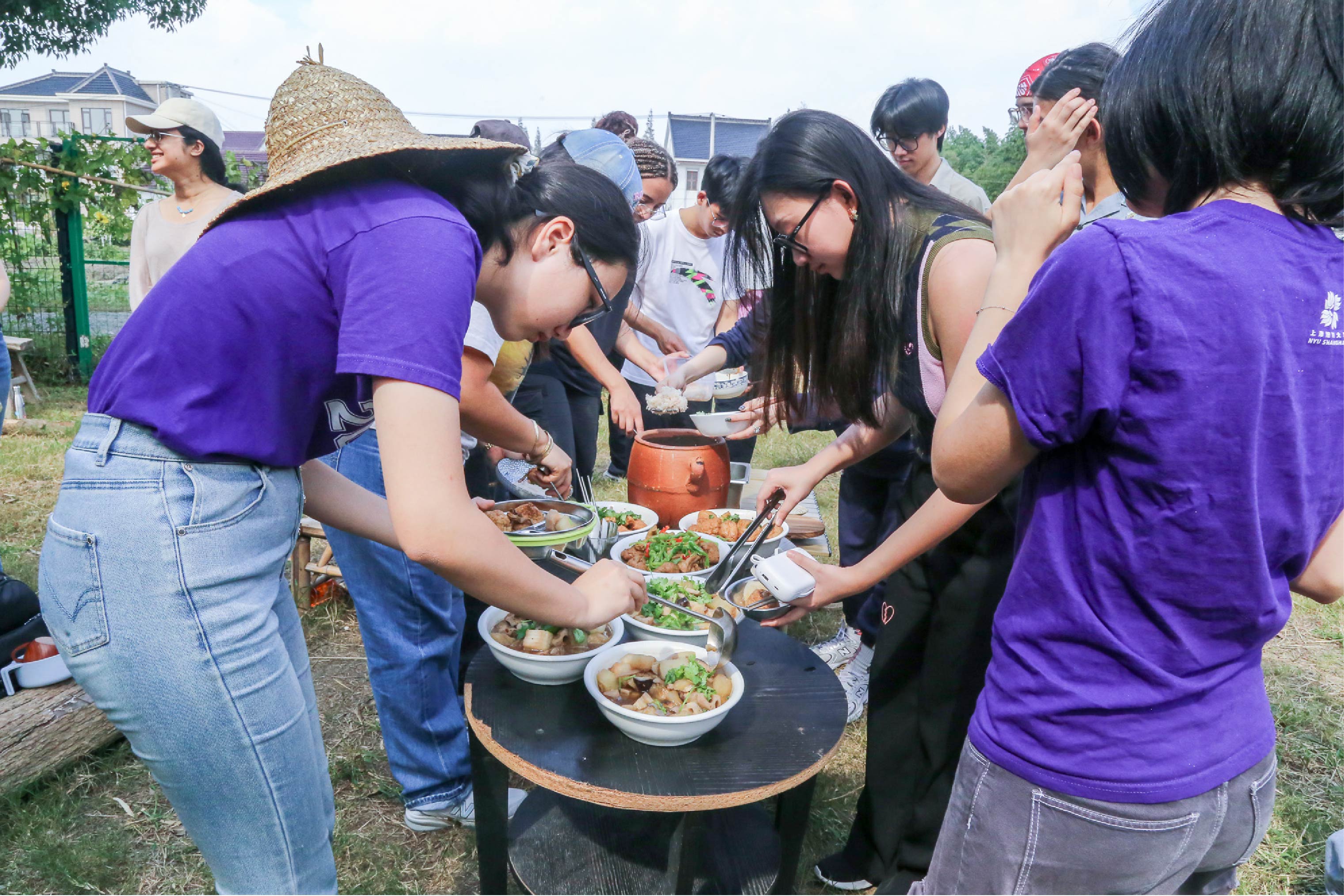
After lunch, students participated in workshops designed by ARC Global Writing and Speaking Fellow, Ling Groccia. Students reflected on Braiding Sweetgrass and discussed their experiences with cultures and rituals of gratitude. The trip was “a special opportunity for us all to slow down and take inventory of the world around us,” said Groccia. “Through these workshops, we wanted to explore how simple actions like expressing gratitude unlock really powerful feelings of abundance and contentment that are central to building relationships with people and the Earth.”
In the afternoon, students harvested rice seeds in one of the fields on the farm under the guidance of Cui Huajie, one of the farmers and hosts, who explained how to spot the difference between multiple varieties of rice. Students also picked rosemary, lemongrass, and basil from the farm’s herb garden to re-pot at home. The day wrapped up with reflections and students shared what they hoped to bring back to their daily lives. “Xiao Cui’s way of life—living a simple life in a hut near his garden, but always feeling happy and content, rich in his spiritual world— taught me that affluence is not how much you own, but how little you ask for,” Yang said.
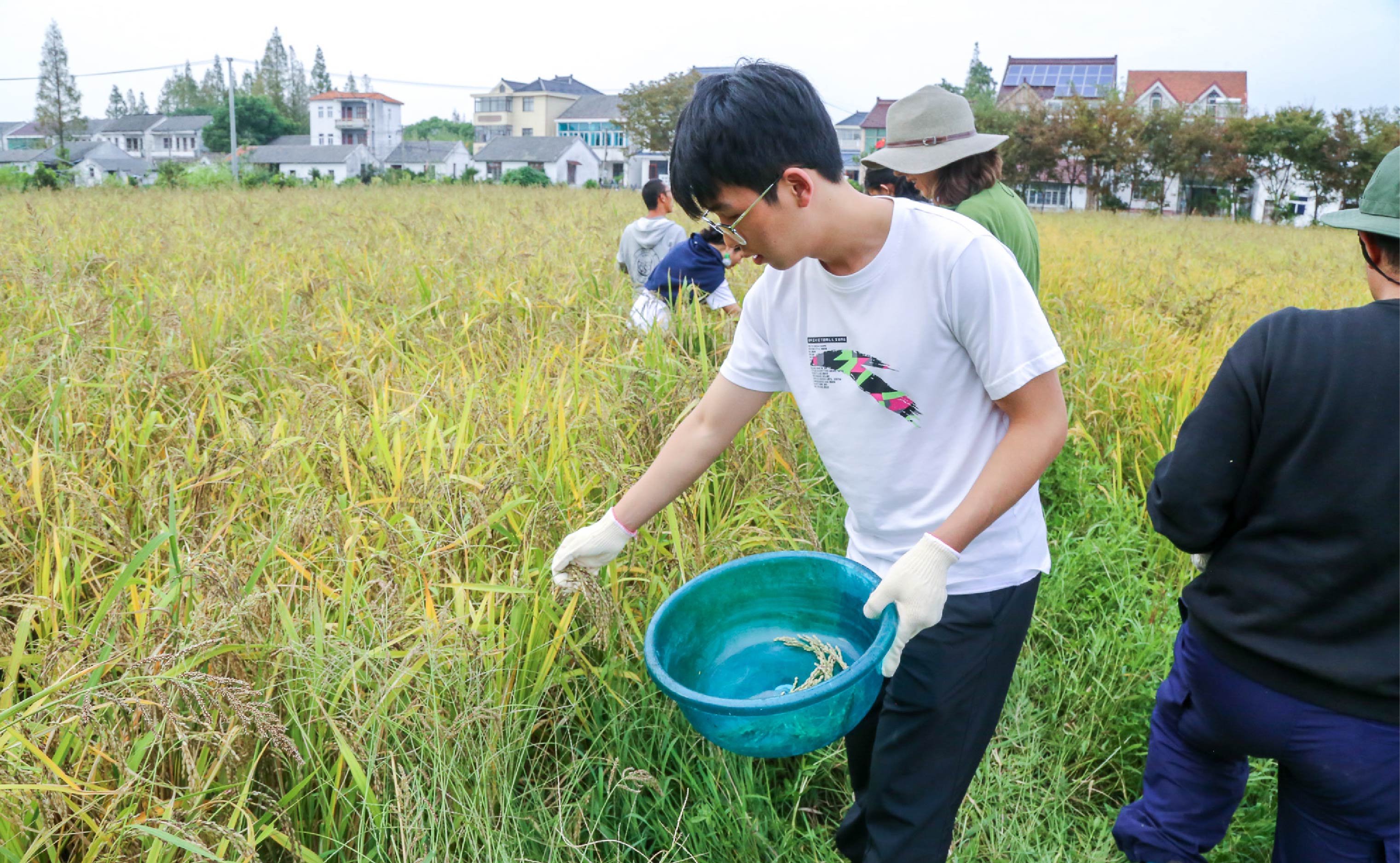
The selection of Braiding Sweetgrass as this year’s NYU Shanghai Reads book “resonates with where we are right now globally,” said Co-Chair of the NYU Shanghai Reads program Sarah Warfield. “It helps us stop and reflect on current changes in climate.” NYU Shanghai Reads Co-Chair Tong Jin added that the move to the New Bund campus sparked inspiration for the book selection. “We started to think about the environment and ways to build community in order to show appreciation for nature,” she said.
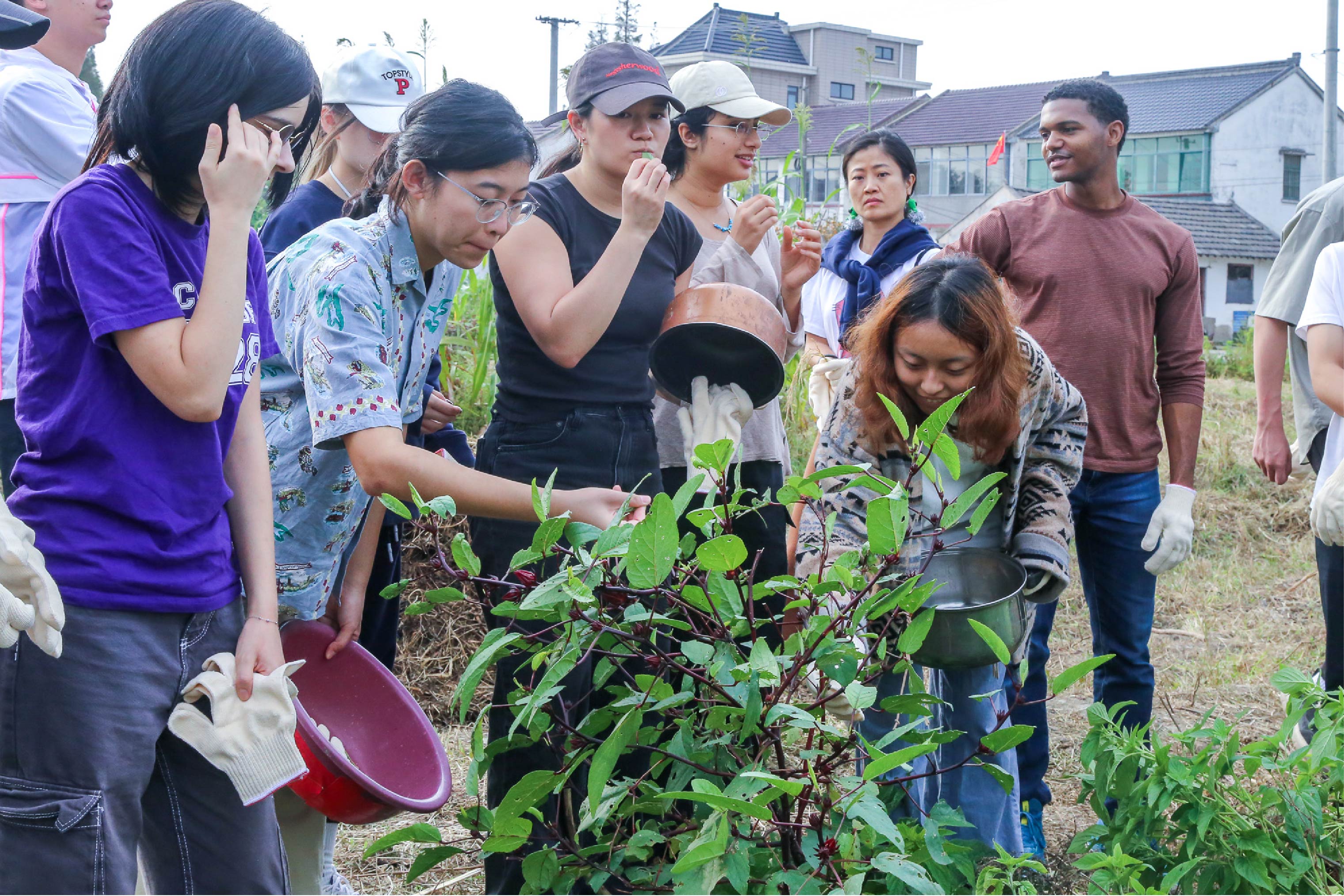
The NYU Shanghai Reads program has implemented several new initiatives this year, including encouraging faculty to incorporate Braiding Sweetgrass in their class reading lists and organizing an essay contest for first-year students. Apart from the farm visit, the program has planned a series of events for students, faculty, and staff with community building in mind. “The wonderful thing about reading a book is it's a shared experience,” said Warfield. “It can really elevate the text in ways you hadn't thought of.”
An interdisciplinary panel held on September 10, featuring Assistant Professor of Interactive Media Arts Bogna Konior, Associate Professor of Practice in Economics Ilaf Elard, and Clinical Assistant Professor of History Wen Shuang, discussed how AI could impact reading across disciplines. Upcoming events include a dance workshop on the rooftop garden on November 7th and a playback theater performance on November 26.


